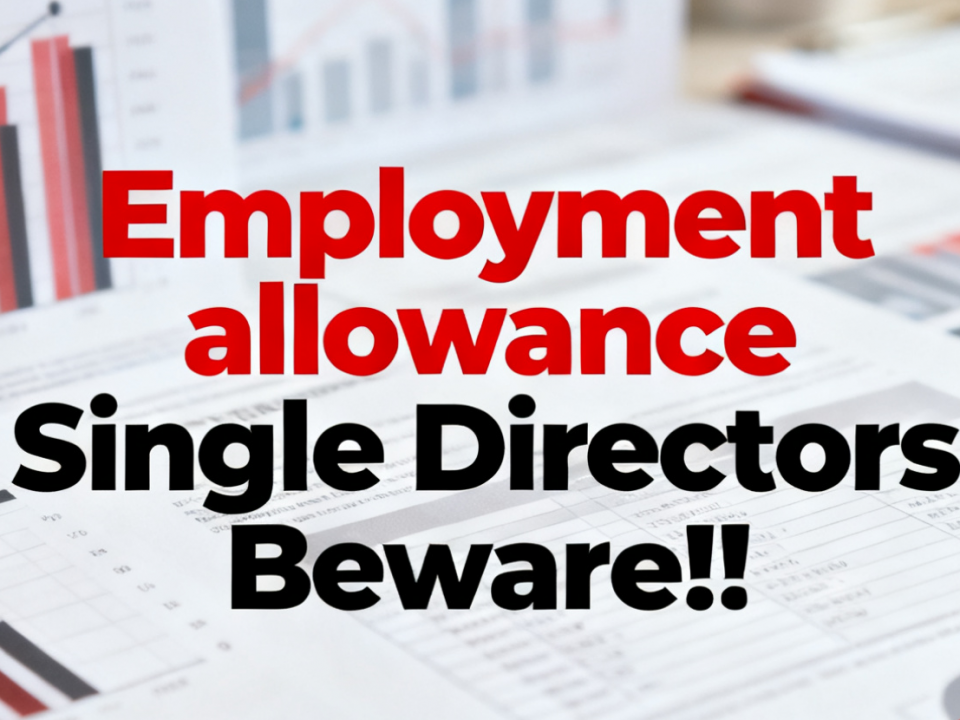Understanding Section 24 and Its Impact on Basic Rate Taxpayers
November 24, 2024Tax Relief on Loan Interest – Understanding Qualifying Loans and Security Restrictions
December 6, 2024Estimated Reading Time: 4 minutes
Limited Company vs. Personal Property Ownership: A Tax Comparison
When investing in buy-to-let property, one of the most crucial decisions is whether to hold it personally or through a limited company. For higher-rate taxpayers, the tax implications can significantly affect profitability. Let’s compare the two approaches using an example based on annual figures.
Scenario:
- Annual rental income: £12,000 (£1,000/month).
- Annual mortgage interest: £6,000 (£500/month).
- Other allowable expenses: £1,200 (£100/month).
- Ownership options: Personally (as a higher-rate taxpayer) or via a limited company.
1. Personal Property Ownership (Higher-Rate Taxpayer)
As a higher-rate taxpayer, you pay 40% income tax on rental profits but only receive a 20% tax relief on mortgage interest.
Annual Income and Expenses:
- Rent: £12,000
- Allowable expenses: £1,200
- Mortgage interest: £6,000 (20% relief only)
Taxable Profit:
- Rent (£12,000) – Allowable expenses (£1,200) = £10,800
- Mortgage interest deduction = £6,000 × 20% = £1,200
- Taxable profit = £10,800
Tax Payable:
- Tax on £10,800 X 40% = £4,320
- Mortgage interest deduction = £1,200
- Net tax liability = £3,120
Net Annual Profit:
- Total rent: £12,000
- Deduct tax (£3,120) + mortgage interest (£6,000) + expenses (£1,200)
- Net profit: £1,680
2. Limited Company Ownership
In a limited company, all mortgage interest and allowable expenses are deductible, and profits are taxed at the corporation tax rate of 19%.
Annual Income and Expenses:
- Rent: £12,000
- Allowable expenses: £1,200
- Mortgage interest: £6,000
Taxable Profit:
- Rent (£12,000) – Allowable expenses (£1,200) – Mortgage interest (£6,000) = £4,800
Tax Payable:
- Tax on £4,800 = £4,800 × 19% = £912
Net Annual Profit:
- Total rent: £12,000
- Deduct tax (£912) + mortgage interest (£6,000) + expenses (£1,200)
- Net profit: £3,888
Comparison Table
| Ownership Type | Net Annual Profit | Tax Payable |
|---|---|---|
| Personal Ownership | £1,680 | £3,120 |
| Limited Company | £3,888 | £912 |
By holding the property in a limited company, you retain £2,208 more profit annually than personal ownership.
Additional Considerations
- Dividend Tax:
If you withdraw profits as dividends, additional tax applies:- Basic rate: 8.75%
- Higher rate: 33.75%
- Additional rate: 39.35%
- £3,388 × 33.75% = £1,143.45, leaving you with £2,744.55
- Administrative Costs:
Running a limited company incurs additional expenses, such as accounting fees (typically £1,000–£2,000 per year). - Flexibility:
Retaining profits in the company allows for reinvestment or delayed withdrawal during a lower tax year. - Inheritance Planning:
Limited companies can simplify transferring properties to heirs compared to personal ownership. - Ltd Company mortgages:
Generally, Ltd company mortgages are comparatively expensive. - Directors Loan:
As the deposit is typically provided by a director, its withdrawal is usually tax-free.
Disclaimer
This blog is for informational purposes only and does not constitute financial or tax advice. Tax rules are subject to change, and the best option depends on your specific circumstances. Always seek advice from a qualified accountant or tax professional.
Conclusion
While a limited company can offer significant tax savings for higher-rate taxpayers, especially those with high mortgage costs, the decision isn’t straightforward. Consider your income, future plans, and administrative capacity before deciding.
Need tailored advice? Get in touch to explore the best ownership structure for your property investments!
![]() 0333 880 8600
0333 880 8600
![]() Tax@taxesdoneright.co.uk
Tax@taxesdoneright.co.uk



